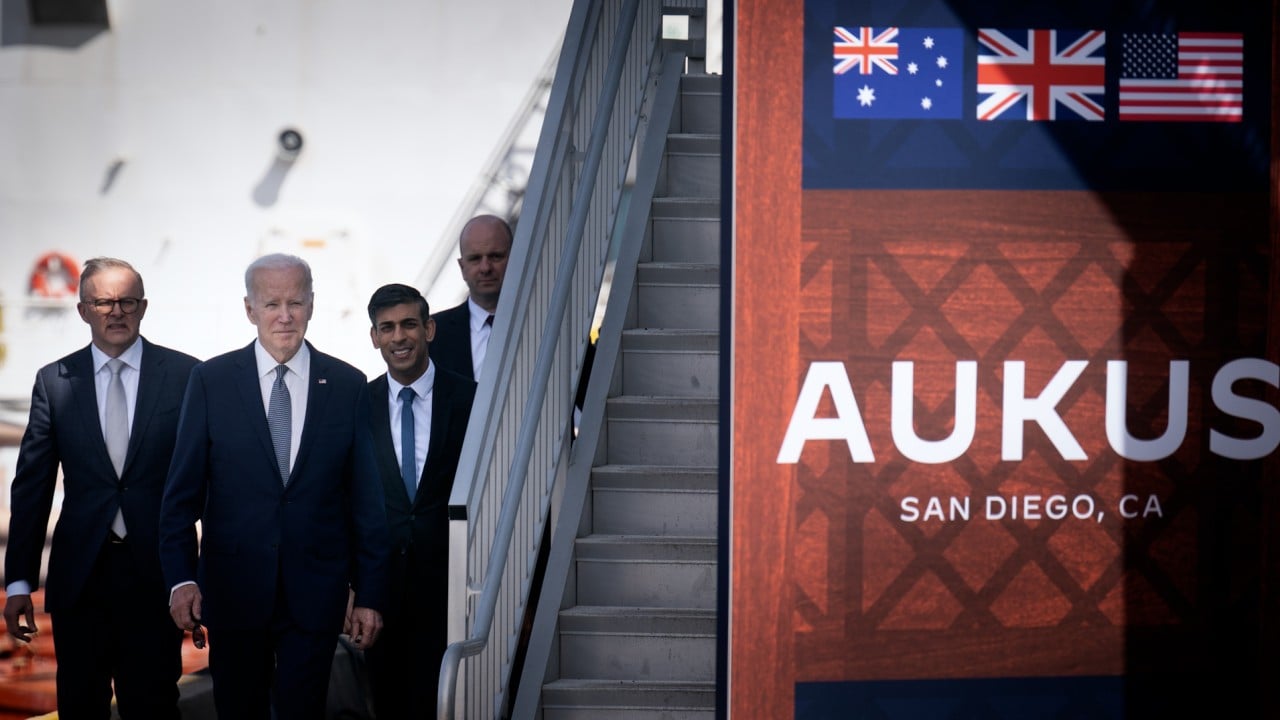Defence Minister Richard Marles said Aukus partners are still working to help Australia acquire the submarines. Former Australian prime minister Malcolm Turnbull, however, said Canberra had been “mugged by reality” over Washington’s wavering position.
Australia-China ties back on track as Wang Yi urges more bilateral cooperation
Australia-China ties back on track as Wang Yi urges more bilateral cooperation
Under their agreement, the US has pledged to supply at least three Virginia-class submarines to Australia in the 2030s. The vessels are a stopgap before nuclear-powered submarines to be built in Adelaide enter into service in the 2040s.
Also known as the SSN-774 class, the Virginia class is the latest category of nuclear-powered fast-attack submarines in service with the US Navy.
Elizabeth Buchanan, an expert associate of the National Security College at the Australian National University, said the US administration’s budget cut for the production of Virginia submarines from two to one was just a starting point.
“This isn’t the final word on the funding front,” said Buchanan, adding that “as a customer” seeking to acquire the submarines, Australia should expect that things could change during negotiation over a decade.
“Counting submarines for counting sake is short-sighted,” Buchanan said, noting that there is no reason why Washington would not sell the submarines to Canberra.
‘Plug and play’: how closer Australia-Asean ties can boost regional stability
‘Plug and play’: how closer Australia-Asean ties can boost regional stability
“It is in the US interests to have more Virginias in the region, it frees up the US Navy to not have to pick between North Atlantic waters and the Indo-Pacific.”
Australia should be thinking strategically about how it can work with the US and other like-minded states by utilising its strategic location to attract more defence vessels to station in Australian waters, she added.
“This releases Australia from pressure to operate say five Virginias, which is not just a challenge in terms of receiving the boats but in terms of having the infrastructure ready to operate them.”
Noting that Aukus’s raison d’être is not just about the submarines, Buchanan said Australian naval personnel are already undergoing related training and Australia has also forged partnerships with other countries on vessel maintenance and visits.
“We are growing our SSN know-how, that’s important,” Buchanan added.
Robert Peters, a research fellow for nuclear deterrence and missile defence at the Washington-based Heritage Foundation think tank, said if fewer Virginia-class submarines were to be delivered, Australia could still bolster its naval defence capabilities by extending the life of its Collins-class submarines.
The Australian-built diesel-electric submarines are considered among the most important operational assets of the Royal Australian Navy.
Aukus should have a shipyard in Australia producing nuclear submarines so that Canberra can field a fleet that is capable of “deterring and if necessary defeating Chinese aggression”, said Peters. An agreement for the licensing and co-production of these submarines between the US and Australia would be ideal, he added.
Going ahead with the plan might not be easy following strong objections from unions and residents this week against a proposed base to build nuclear submarines in Port Kembla in the eastern Australian state of New South Wales.
“We don’t want to be part of someone else’s belligerent nuclear plans,” said Arthur Rorris, head of the South Coast Labor Council, comprising unions representing 50,000 workers in the area.
The objections stem from concerns that the base can derail the fledgling clean-energy sector by taking up scarce land and lead to heightened security curbs due to the permanent presence of US warships.
Noting that challenges over the delivery of submarines would not surface until the 2030s, Peters said there is still time to address them given the strong ties between Australia and the US.
Australia should ‘end servility to US’, defuse Aukus deal: ex-Greek minister
Australia should ‘end servility to US’, defuse Aukus deal: ex-Greek minister
“I believe that an expanding partnership between the US, Australia, and eventually Japan and South Korea to co-produce key platforms and munitions to deter and if necessary defeat Chinese and North Korean aggression will continue,” he added.
Nishank Motwani, a senior analyst at the Australian Strategic Policy Institute in Washington DC, said fewer submarines for Australia meant a reduction in crew strength and capabilities in maritime intelligence, surveillance, and reconnaissance.
But Aukus is an alliance with broad objectives that go beyond Australia’s nuclear submarines with Pillar 2 serving as “the glue” that binds the three members, Motwani said.
While Pillar 1 under Aukus aims to deliver nuclear submarines to Australia, Pillar 2 entails cooperation across critical and emerging technologies such as artificial intelligence and quantum computing.
A fundamental question is the current state of deterrence in the Indo-Pacific and how nuclear-powered submarines can produce the desired deterrent effects for Australia under Aukus, Motwani said.
“Each of the partners needs to think about what will sustain this agreement over many decades and move it forward against domestic and foreign currents that could harm its realisation.”


